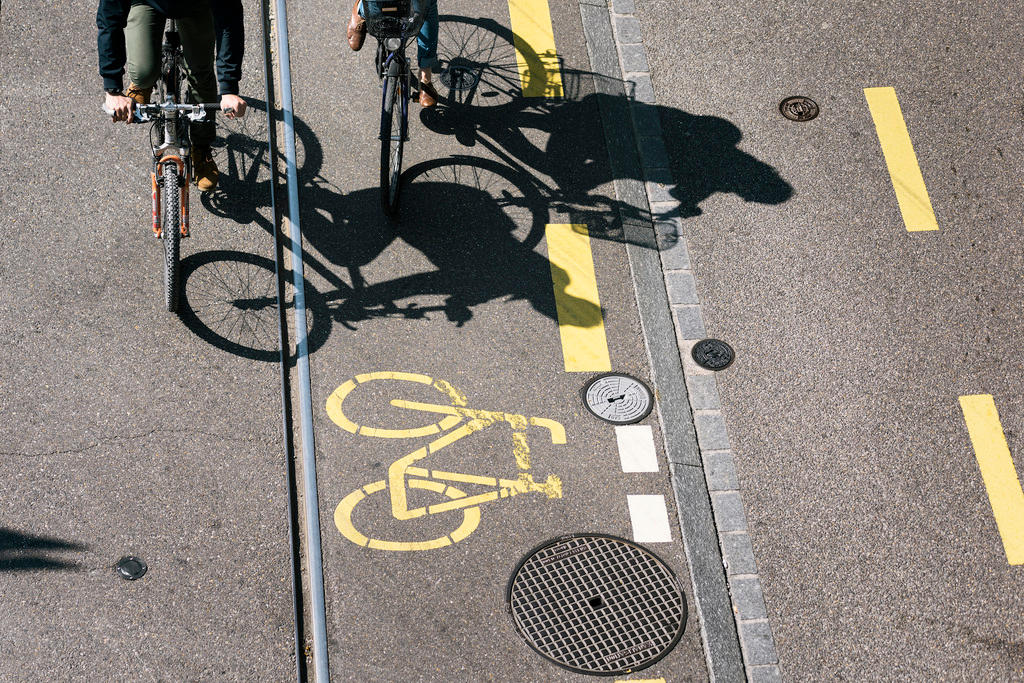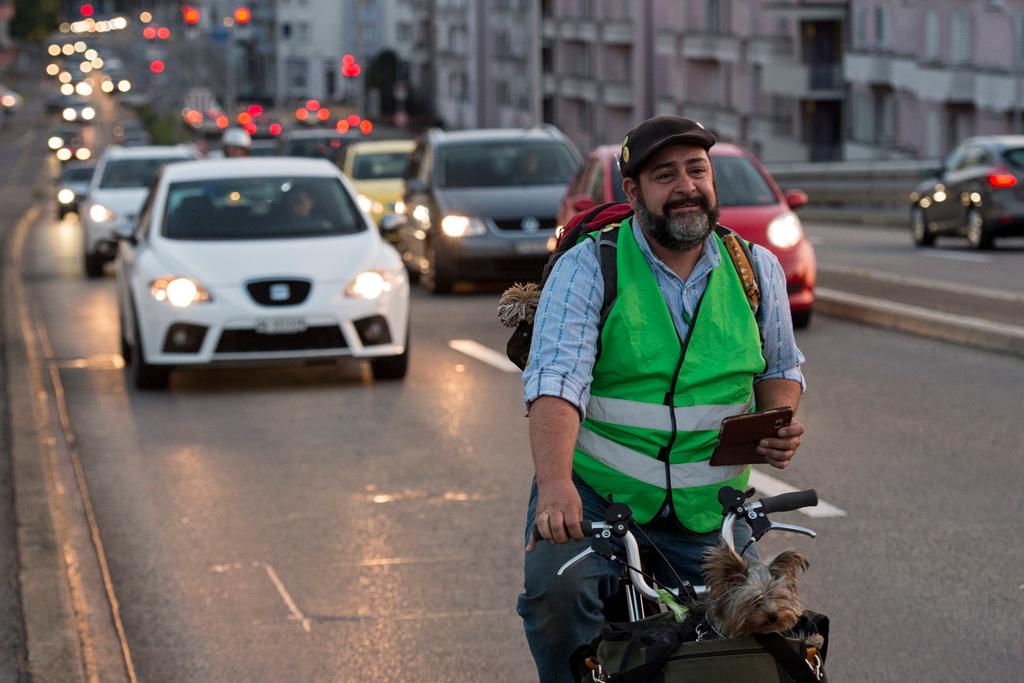Biking still faces uphill battle in Switzerland

As the bicycle celebrates its 200th year, advocacy group Pro Velo Switzerland says there is still a lot of unfulfilled potential when it comes to Switzerland’s use of the two-wheeled mode of transport.
On June 12, 1817, a German aristocrat named Karl Drais rode 14 kilometres (8.7 miles) on pedal-less wooden beam with two wheels of his own invention. The eponymous contraption, the draisine, was the direct predecessor of the bicycles we know and love today.
But Matthias Aebischer, president of Pro Velo SwitzerlandExternal link, told the Swiss News Agency on Monday that the nation is still something of a “developing country” when it comes to bicycles: only 8% of the Swiss population rides regularly, according to mobility surveys. The Dutch are the record-holders, with 36% of citizens pedalling regularly.

More
Can Swiss commuters have it all?
Aebischer admits that it is perhaps unfair to compare bike riding rates in mountainous Switzerland to those in the Netherlands, with its more even terrain. But he still has hopes that the Swiss can catch up to their neighbours in Germany, of whom 12% report biking regularly.
A 2010 study on mobility in six German-speaking Swiss cities showed that only 6% of people travel by bike in Zurich, 11% in Bern, 13% in Winterthur and 16% in Basel. Since then, Zurich has announced a plan double its bike paths by 2025.
National strategy
Last year, Pro Velo Switzerland launched a popular initiative called “For the promotion of bicycle, foot and hiking paths”. The goal of the initiative, which eventually gathered 105,000 signatures, was to encourage more biking in Switzerland by improving infrastructure, and to help equalise mobility for hikers, bikers and pedestrians.
“While the network of hiking paths almost has the status of a national good, we still lack a continuous network of cyclable trails,” Aebischer told the Swiss News Agency.
The text of the initiative demanded that the promotion of cycling be written into in the part of the Swiss constitution a dealing with paths and pedestrian walkways. But the Swiss cabinet ended up presenting a counter-proposal to the initiative. While supportive of the principle of equality, the counter-proposal does not support establishing requirements to that end.

In compliance with the JTI standards
More: SWI swissinfo.ch certified by the Journalism Trust Initiative











You can find an overview of ongoing debates with our journalists here . Please join us!
If you want to start a conversation about a topic raised in this article or want to report factual errors, email us at english@swissinfo.ch.